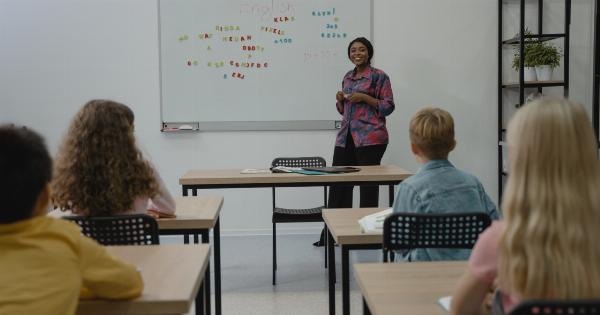Reading is a fundamental skill that forms the backbone of education. It is the gateway to knowledge, imagination, and critical thinking.
However, recent studies have uncovered a dire situation in the educational system: half of high schoolers lack basic reading skills. This alarming statistic has far-reaching implications for their educational journey and future prospects.
Understanding Basic Reading Skills
Basic reading skills encompass the ability to decode words, understand the meaning of written text, and make connections and inferences.
Proficiency in these skills is crucial for academic success, as virtually all subjects require reading comprehension. Without a solid foundation in reading, students may struggle to understand complex concepts, analyze information, and effectively communicate their thoughts.
The Importance of Early Literacy
This issue often stems from a lack of early literacy development. Research suggests that children who are not exposed to early reading experiences may struggle to develop crucial pre-reading skills, such as phonemic awareness and vocabulary building.
These skills are essential building blocks for later reading success. When these foundational skills are not sufficiently developed, students can fall behind their peers, and the gap only widens as they progress through school.
Insufficient Reading Instruction
Another significant factor contributing to the problem is the quality of reading instruction provided in schools. Many teachers may lack the necessary training to effectively teach reading, particularly for students with diverse learning needs.
The one-size-fits-all approach to reading instruction often fails to address individual students’ specific challenges and strengths, leaving struggling readers without the targeted support they require.
Limited Access to Reading Materials
Access to a wide range of reading materials is vital for developing reading skills and fostering a love for reading.
Unfortunately, many high schoolers, especially those from disadvantaged backgrounds, do not have access to an extensive selection of books or other reading resources. This lack of exposure to varied reading materials inhibits their ability to expand vocabulary, develop comprehension strategies, and engage in independent reading practices.
The Impact of Technological Distractions
In today’s digital age, high schoolers are constantly bombarded with distractions from electronic devices. This constant access to screens and social media platforms can significantly impede their reading habits.
Rather than devoting time to reading books or other forms of written content, many students find themselves engrossed in instant messaging, online gaming, or scrolling through social media feeds. This shift in attention and priorities can lead to a decline in reading skills and a reduced ability to focus and concentrate on longer texts.
Consequences for High Schoolers
The consequences of lacking basic reading skills are numerous. Firstly, students may struggle to keep up with their coursework, leading to poor academic performance.
Reading comprehension difficulties can hinder their ability to understand textbooks, follow instructions, and complete assignments effectively. As a result, their grades may suffer, potentially limiting their opportunities for higher education and future career prospects.
Furthermore, limited reading skills can significantly impact a student’s self-confidence and self-esteem. As they struggle to comprehend texts, they may become discouraged and disengaged from the learning process.
This can lead to a negative attitude towards education and a lack of motivation to improve their reading abilities. The long-term ramifications of this mindset can be detrimental to their overall educational journey.
Moreover, inadequate reading skills may hinder students’ ability to become well-rounded individuals. Reading provides exposure to diverse perspectives, ideas, and cultures.
Without the ability to comprehend written material, students may miss out on crucial lessons in empathy, critical thinking, and global awareness.
Addressing the Issue
Efforts to improve high schoolers’ reading skills must begin from an early age. Early literacy programs that encourage parents to read to their children are essential in fostering a love for reading and building a strong reading foundation.
Additionally, providing professional development opportunities for teachers to enhance their reading instruction techniques can equip them with the necessary tools to support struggling readers effectively.
Enhancing access to reading materials is also critical. Schools should strive to establish well-stocked libraries with a diverse selection of books that cater to students’ various interests and reading levels.
Collaboration with community organizations or initiatives can expand these resources, ensuring that all students have the opportunity to develop their reading skills in and outside of school.
Integrating technology in a thoughtful manner can also help engage high schoolers with reading.
Utilizing digital platforms that provide interactive reading experiences or access to e-books can encourage students to explore different genres and develop their comprehension skills while capitalizing on their digital familiarity.
The Need for Comprehensive Reading Programs
To address the high number of high schoolers lacking basic reading skills, there is a pressing need for comprehensive reading programs that extend beyond isolated interventions.
Integrating reading instruction across all subjects, promoting independent reading, fostering classroom discussions centered around texts, and incorporating reading support into the school curriculum can collectively contribute to improving students’ reading abilities.
The Long-Term Benefits of Strong Reading Abilities
Developing strong reading abilities is not only crucial for academic success but also essential for personal growth and lifelong learning.
A solid foundation in reading empowers individuals to navigate various texts confidently, interpret information critically, and express ideas effectively. These skills are indispensable across all fields of study and throughout an individual’s personal and professional life.
Conclusion
Half of high schoolers lacking basic reading skills is a stark reminder of the urgent need to address this pressing issue.
By investing in early literacy programs, enhancing teacher training, improving access to quality reading materials, minimizing technological distractions, and implementing comprehensive reading programs, we can foster a generation of high schoolers equipped with the essential reading skills needed to navigate the complexities of the modern world. It is imperative that we bridge this gap in literacy to ensure a brighter future for all students.


























